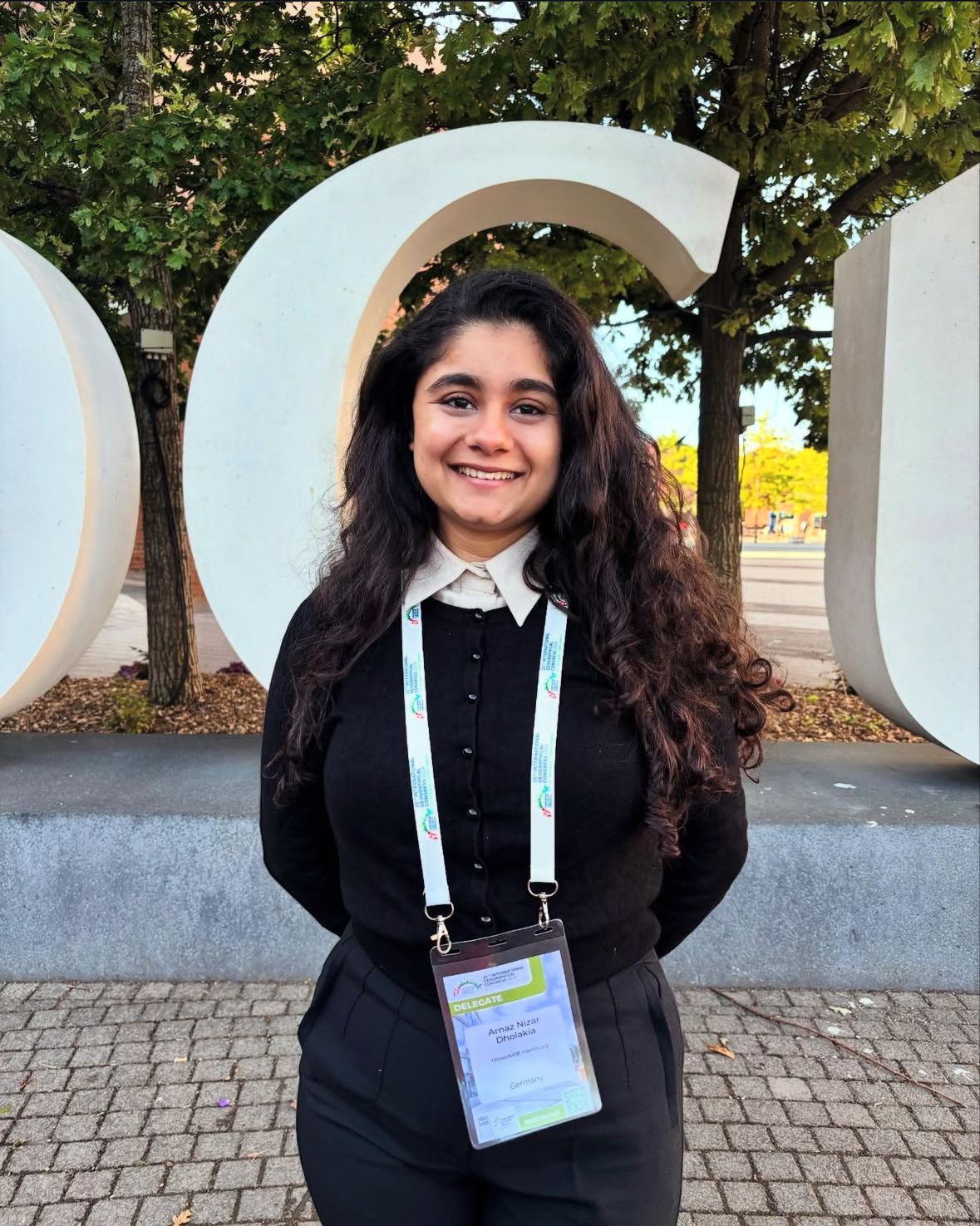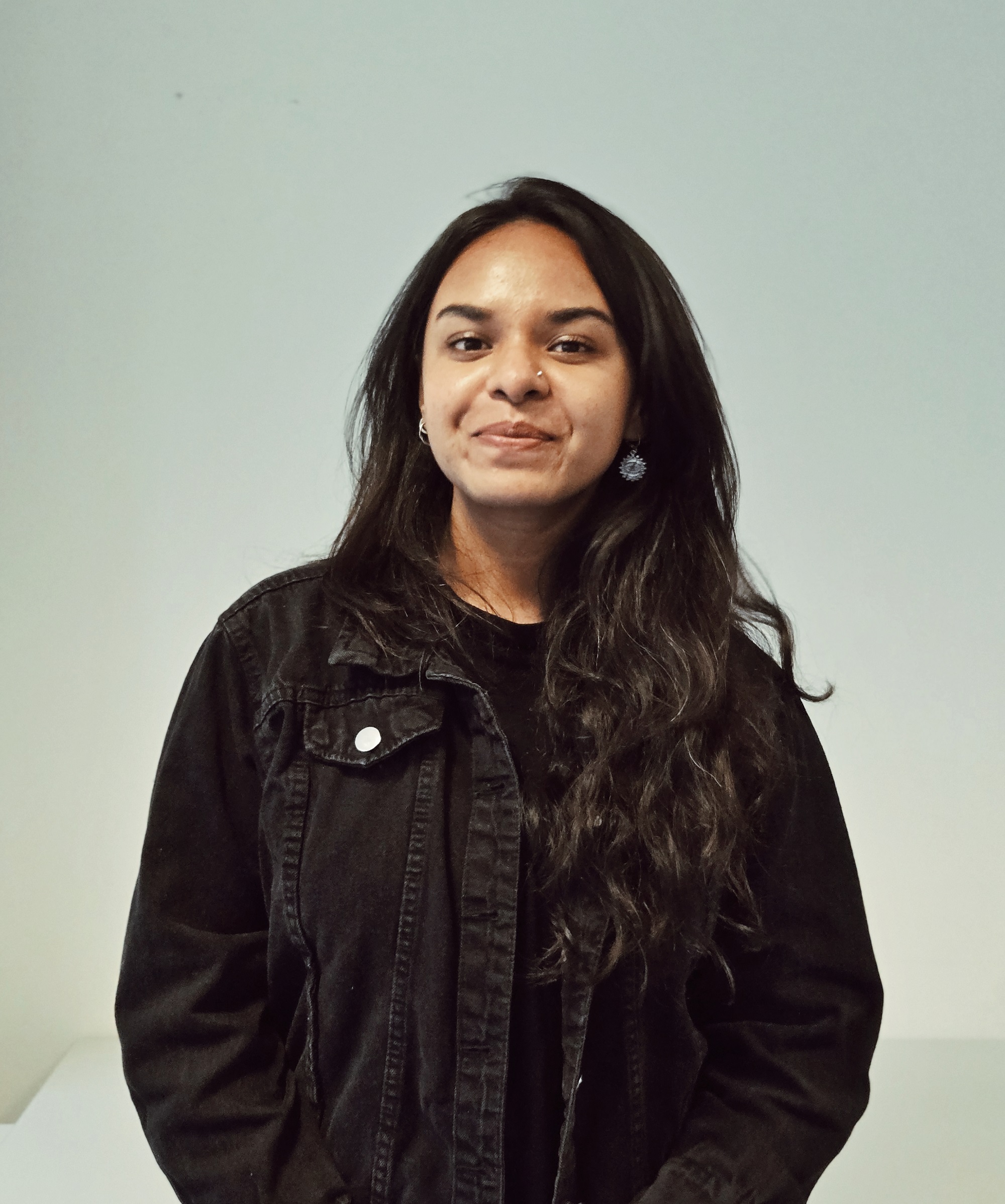Arnaz and Pritha are master's students in the interdisciplinary program, Integrated Climate System Sciences (ICSS), at the University of Hamburg, Germany. With combined backgrounds in the natural and social sciences, the two are contributing to research in the field of agriculture, specifically in the context of climate extremes, adaptation measures, and climate activism.

With a background in Economics and Applied Mathematics, Arnaz has always been drawn to the intersections of environmental and social systems. During her undergraduate studies, she was captivated by the complex economic, social, and environmental nuances of enteric methane emissions from cattle in India. Her curiosity led her to pursue an interdisciplinary path in climate science and sustainable agriculture. For her master's thesis, Arnaz is investigating the impact of climate extremes on farms, farm economics, agriculture, and livestock in Germany — aiming to quantify monetary losses over the past three decades. She is also part of MYRIAD-EU and macroMIP projects at the Research Unit Sustainability and Climate Risks. Arnaz is a working student at the Centrum für Erdsystemforschung und Nachhaltigkeit (CEN), where she explores stakeholder interaction for Carbon Dioxide Removal projects submitted to the UNFCCC. She aspires to be an Agricultural and Climate Economist and the pillars of her wellbeing are repair, refine, and reciprocate.

Pritha — although academically trained in core physics — was exposed to the social sciences in her professional path. Intrigued to work in a field that integrates physics and social sciences to tackle on-the-ground issues, Pritha came across the interdisciplinary ICSS program at University of Hamburg. As her master's thesis, Pritha is working on understanding the (dis)connect between climate change perceptions and priorities of Indian farmers and the narratives and communication strategies adopted by Indian climate movements. Pritha simultaneously works on a joint project between the Max Planck Institute for Meteorology and the Environmental Economics faculty of University of Hamburg — helping assess the seasonal prediction of tropical nights in Germany, the German public's trust in such predictions, and corresponding willingness to invest in adaptive measures. As part of her Research Assistant position with her supervisor from the Sociology faculty, Pritha is a tutor for junior ICSS master's students. She is also actively involved in the Student Council of the ICSS program. Pritha aspires to become an informed climate communicator — hoping to bridge the gap between the scientific community and society in all matters climate change, adaptation, and activism.
With YPARD Germany, Arnaz and Pritha hope to engage with Germany’s agricultural community, learn from their experiences and perspectives, and foster dialogues to bring about meaningful developments towards a sustainable, climate-resilient agro-food system.